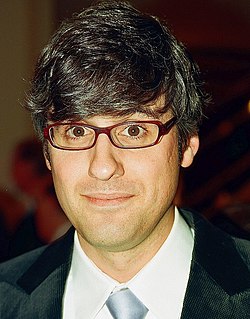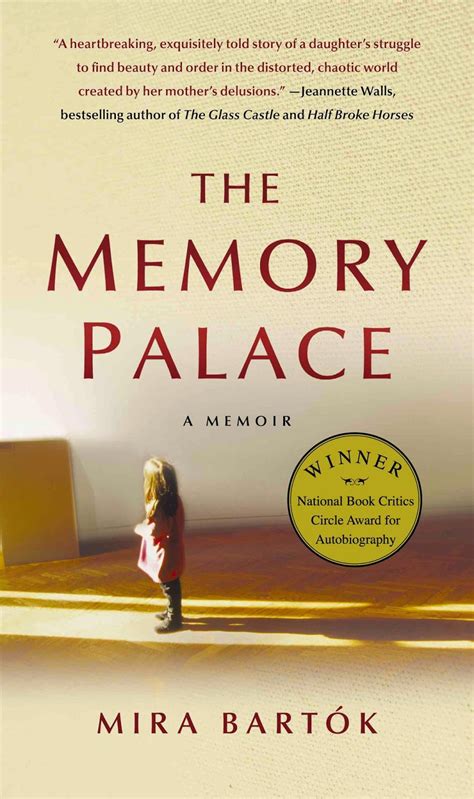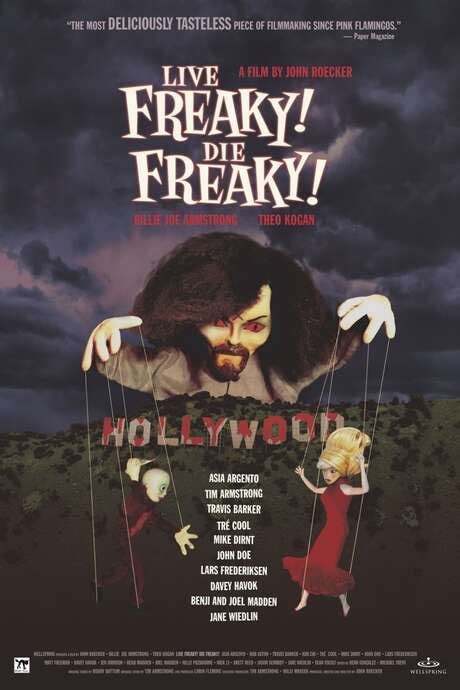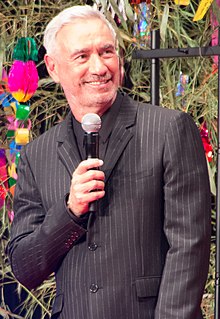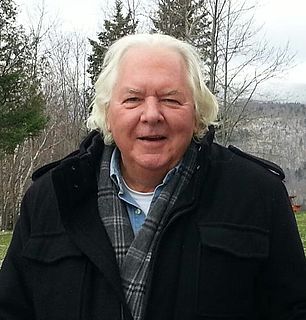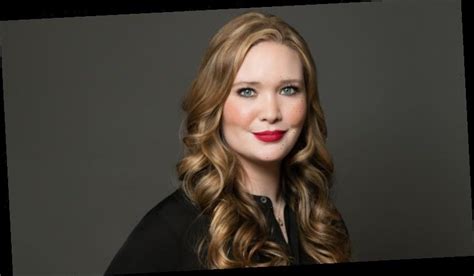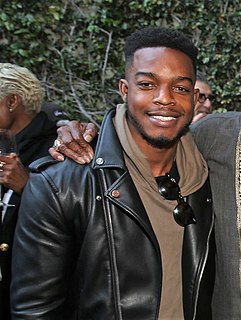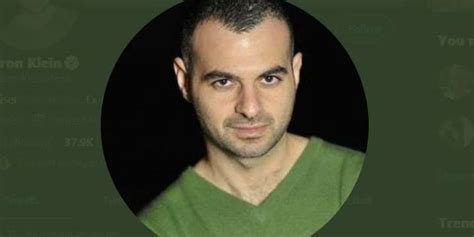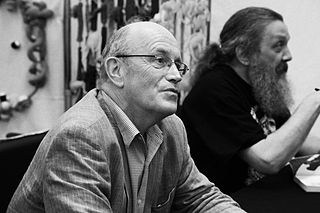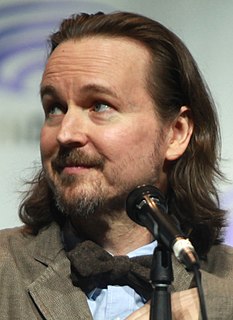Top 48 Retelling Quotes & Sayings
Explore popular Retelling quotes.
Last updated on April 14, 2025.
But because of his telling, many who did not believe have come to believe, and some who did not care have come to care. He tells the story, out of infinite pain, partly to honor the dead, but also to warn the living - to warn the living that it could happen again and that it must never happen again. Better than one heart be broken a thousand times in the retelling, he has decided, if it means that a thousand other hearts need not be broken at all. (vi)
If you read Exodus 15 carefully, it describes a storm at sea. This is the old Yahwistic source. In the retelling of the story in the later Priestly source, it is more miraculous: The water stands up on either side like a wall. There are walls of water standing up. As you move back in time, oddly enough, the story becomes more historical.
As the great philosopher George Santayana would have said, 'those who cannot remember the past . . . should simply read Jan Van Meter's Tippecanoe and Tyler Too.' Van Meter's greatest hits collection of slogans is the catchiest ever retelling of American history. It's like the greatest minds of Madison Avenue sat down to write a history book. They don't make sound bites like they used to!
Paul's One Way Out is a fresh, intelligently arranged, and satisfyingly complete telling of the lengthy (and unlikely) history of the group that almost singlehandedly brought rock up to a level of jazz-like sophistication and virtuosity, introducing it as a medium worthy of the soloist's art. Oral histories can be tricky things: either penetrating, delivering information and backstories that get to the heart of how timeless music was made. Or too often, they lie flat on the page, a random retelling of repeated facts and reheated yarns. I'm happy to say that Paul's is in that first category.
After I’d told her – the mall, the taxi, Cross stroking my hair – she said, ‘Did he kiss you?’ ‘John and Martin totally would have seen that,’ I said, and as I felt myself implying the circumstances had prevented our kissing, I thought maybe this was why you told stories to other people – for how their possibilities enlarged in the retelling.
I used to be like "Why are we doing a remake? What are remakes being done for?" But then, we do that all the time in the theater. Retelling stories is what we've done since we were sitting around campfires. It's a part of the human spirit. It doesn't have to be negative to creativity. It can be completely opposite.
These nights are endless, and a man can sleep through them, or he can enjoy listening to stories, and you have no need to go to bed before it is time. Too much sleep is only a bore. And of the others, any one whose heart and spirit urge him can go outside and sleep, and then, when the dawn shows, breakfast first, then go out to tend the swine of our master. But we two, sitting here in the shelter, eating and drinking, shall entertain each other remembering and retelling our sad sorrows. For afterwards a man who has suffered much and wandered much has pleasure out of his sorrows.
Once you understand that Goliath is much weaker than you think he is, and David has superior technology, then you say: why do we tell the story the way we do? It becomes, actually, a far more meaningful and important story in its retelling than in the kind of unsophisticated way we've done it for, I think, too long.
Love is a story we tell with another person. It's cocreation through conarration. When you hit bumps in the road and challenges, you write a new chapter in your story together. Love is the constant act of revising and retelling your own story in real time. You don't do it by yourself. You do it with someone else. The only way you do that is to talk to each other and create a shared narrative.
One of the core ideas of the Bible is that meaning can be found in history. The sheer act of telling and retelling stories helps us to understand God's role in the world as well as our own position in a long line of ancestors who have wrestled with similar issues to the ones we wrestle with every day.
In all great works of fiction, regardless of the grim reality they present, there is an affirmation of life against the transience of that life, an essential defiance. This affirmation lies in the way the author takes control of reality by retelling it in his own way, thus creating a new world. Every great work of art, I would declare pompously, is a celebration, an act of insubordination against the betrayals, horrors and infidelities of life. The perfection and beauty of form rebels against the ugliness and shabbiness of the subject matter.
Wherever a story comes from, whether it is a familiar myth or a private memory, the retelling exemplifies the making of a connection from one pattern to another: a potential translation in which narrative becomes parable and the once upon a time comes to stand for some renascent truth. This approach applies to all the incidents of everyday life: the phrase in the newspaper, the endearing or infuriating game of a toddler, the misunderstanding at the office. Our species thinks in metaphors and learns through stories.
All literature, highbrow or low, from the Aeneid onward, is fan fiction....Through parody and pastiche, allusion and homage, retelling and reimagining the stories that were told before us and that we have come of age loving--amateurs--we proceed, seeking out the blank places in the map that our favorite writers, in their greatness and negligence, have left for us, hoping to pass on to our own readers--should we be lucky enough to find any--some of the pleasure that we ourselves have taken in the stuff that we love: to get in on the game. All novels are sequels; influence is bliss.
I think it's why we're able to look at with comic book stories or origin stories, why is it that we can keep retelling these stories over and over? And hopefully it's because it hits something so universal and so primal inside of us that we actually yearn for that same story over and over. But toned and different form, and updated and modernized, and I can go into the specifics.
Honestly, I think there's a cycle to the popularity of fantasy and fairytales that usually coincides with times of unrest or hardship in our own world. By retelling these legends or immersing ourselves in fantasy realms, we can safely explore the very real, very day-to-day darkness of our own lives.
The Christian claim is: Nothing explains the facts better than an all-powerful, all-knowing, omnipresent god creating the universe and sending Jesus to spread his message. This is about as remarkable a claim as could be stated, and yet it is tossed out lightly. Christians seem to imagine that "God did it" is as plausible as the natural explanation that stories grow with the retelling. The Christian has the burden of proof, and it's an enormous burden given this enormous claim.
I realize the importance of retelling those stories is so that, one, we don't forget what our ancestors had to do so we can be where we are, and two, to just educate the newer generation. I'm being educated by all these films ['Race' and 'Selma'] and the things I've had the opportunity to be a part of, and kids even younger than me are being educated, too. It's important to make sure those stories never die.
London is a city that sleeps too much. This is the mould of its quality. A magnetic contract: to reinvent itself on the other side of dream, each day. And such dreams, smouldering against the tidal spine of the river, telling and retelling the tales that must be told to manifest a city's bones. Whispering the night architecture back into stone.
If, when we compare two versions of a story, the second known to be a retelling of the first, and find that the second has more of a miraculous element, we may reasonably conclude we have legendary (or midrashic or whatever) embellishment. The tale has grown in the telling. This sort of comparison is common in extrabiblical research and no one holds that it cannot properly indicate legend formation there.
What I thought was so great about Rise [of the Planet of the Apes ] was that it wasn't a retelling; it was an entering of the universe at a different point. So it's Planet of the Apes. We already know the ending. There's no mystery in that! It becomes Planet of the Apes. So it's not about what is at the end; it's about how did we get there? And that enabled something that was totally fresh, which was an ape-point-of-view movie.

